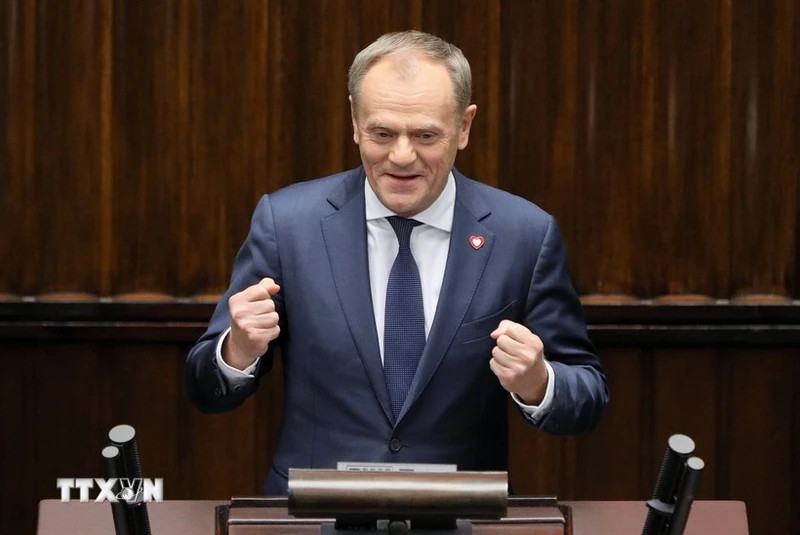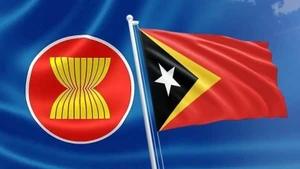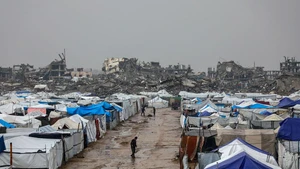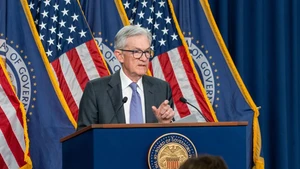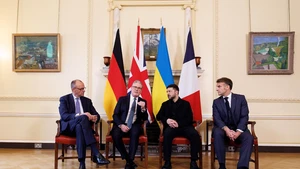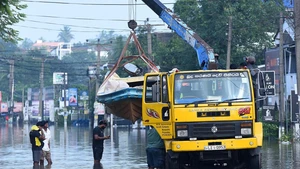Taking over the "hot seat" when a series of political storms and economic instability have surrounded countries in the region, Poland has determined that the country's upcoming journey will not be a bed of roses.
At a joint press conference with President of the European Parliament (EP) Roberta Metsola in the Polish capital, Warsaw, Polish Prime Minister Donald Tusk stressed that the priorities during his country's rotating presidency of the Council of the EU, starting from January 1, 2025, will include security, energy independence and the EU's competitiveness.
Donald Tusk suggested that Europe needs to show greater solidarity within the bloc to face external competition.
Although acknowledging that Poland bears the responsibility of steering the "EU ship" during a “difficult and critical” period of geopolitical issues closely related to the union, such as the crisis in Ukraine, the upcoming presidential election in Belarus, conflicts in many parts of the world, the Polish Prime Minister still expressed confidence that Warsaw's presidency will be a breakthrough for the EU.
Poland takes on the presidency of the EU Council when the bloc has just experienced a turbulent year, especially with Germany and France, the two main economic engines of the Old Continent, falling into political turmoil.
Political upheavals in these two countries have raised concerns about the union's future and position in the international arena, as well as threatening to hinder the fragile economic recovery of the EU in particular and Europe in general.
French President Emmanuel Macron is trying to rebuild his government while pledging to complete his term until 2027. In Germany, Chancellor Olaf Scholz and the Social Democratic Party (SPD) are struggling as the early general election in February 2025 approaches, but polls show that the SPD's support rate is not very optimistic.
The political crisis in France and Germany comes at a time when the EU faces many security challenges, especially the situation in Ukraine.
Donald Trump's preparation to enter a second term as US President has raised concerns that Trump may introduce policies unfavourable to the EU regarding Ukraine, making the EU's burden of supporting Ukraine heavier.
On the economic front, the European Central Bank (ECB) recently commented that the economic growth of the Eurozone will slow down in the short term, with the medium-term outlook uncertain.
ECB President Christine Lagarde stressed the Eurozone's dependence on open trade and integration into global supply chains, making it vulnerable to external shocks.
Meanwhile, the US President-elect proposed a 10% tax on goods from Europe during his election campaign, causing many disadvantages for the EU economy. The German auto industry, a pillar of the European economy, is also experiencing a difficult period.
German automakers face many challenges, such as high production costs, difficulties transitioning to electric cars, declining demand in the Chinese market, and pressure from energy and climate policies.
During its tenure as rotating President of the EU Council in the first six months of 2025, Poland will experience an important political event in the country, which is the presidential election in May 2025.
Amid concerns that domestic events will prevent Warsaw from prioritising the EU agenda, Poland's Minister for EU Affairs, Adam Szłapka, told Politico that elections, including the presidential election in Poland, are a natural part of democracy and will not affect the country's work in the EU.
EU officials believe Poland will effectively lead the EU, especially on the bloc's security and defence issues.
